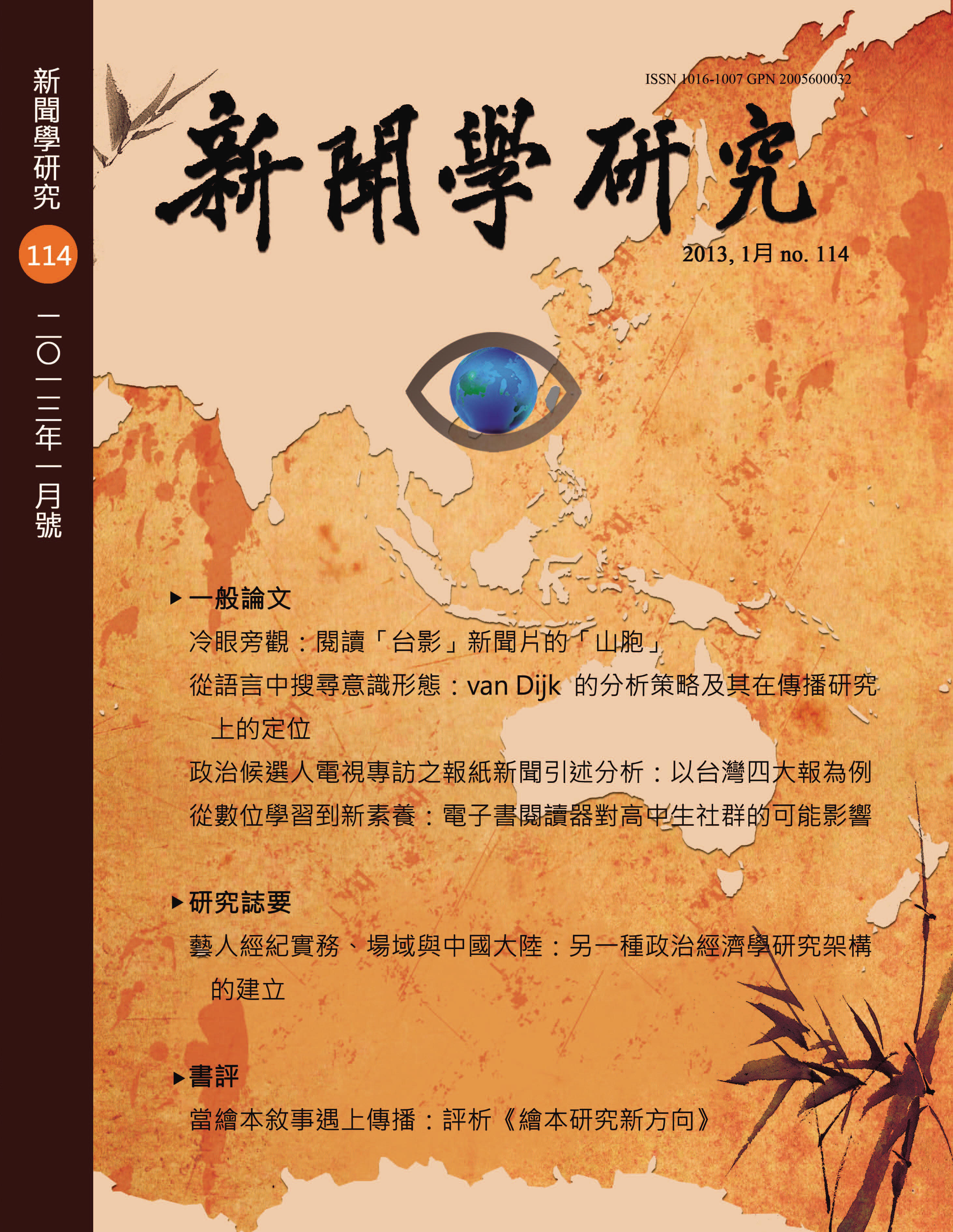前期出版
前期出版
頁數:41﹣78
從語言中搜尋意識形態:van Dijk的分析策略及其在傳播研究上的定位
Uuncovering the Hidden Ideologies of Everyday Language: van Dijk’s Analytical Strategy and its Positioning in Media Studies
研究論文
作者(中)
倪炎元
作者(英)
Yen-Yuan Ni
關鍵詞(中)
新聞學研究,政大
關鍵詞(英)
Critical discourse analysis, culture studies, ideology
中文摘要
本論文主要針對當代批判論述研究的代表學者T. A. van Dijk之分析策略與理論定位進行探討。一方面藉由理論系譜的溯源,還原van Dijk所舖陳的論述/認知/社會的三角互動;另一方面則是透過實例分析的探討,檢視van Dijk如何從日常語言文本中解析出一組意識形態的論述。更重要的是,本研究也嘗試為van Dijk所揭示的分析策略進行理論脈絡的定位。本研究發現,van Dijk的分析架構在當代各種論述理論中之所以能獨樹一幟,在於他的分析架構大幅納入語意學與語用學的觀點,這個語言學立場的選擇,使得van Dijk的分析策略與文化研究的觀點形成明顯的區隔。本研究同時也發現,在意識形態的研究上,van Dijk的分析架構確實可以幫助研究者從日常語言的正式文書中,發掘隱藏在其中的意識形態密碼。這一點對台灣媒體文本的研究,亦有相當的啟發作用。
英文摘要
This paper explores the analytical strategies and positioning of van Dijk—a scholar of contemporary critical discourse analysis. The paper uses the traceability of theoretical lineage to restore van Dijk’s layout of the interaction between discourse, cognition, and society. The paper also uses a case study to examine how van Dijk analyzed and identified a group of ideological discourse from daily language texts. This study positions the analytical strategy developed by van Dijk in a theoretical context. The results show that van Dijk’s analytical framework is applicable to various contemporary discourse theories because his analytical framework includes semantic and syntax perspectives. This linguistic perspective makes van Dijk’s analytical strategies significantly different from cultural studies. In the study of ideology, van Dijk’s analytical framework can help researchers uncover hidden ideological passwords from everyday language or formal documents. This finding contributes to the study of Taiwanese media texts and ideology.
1363次下載



